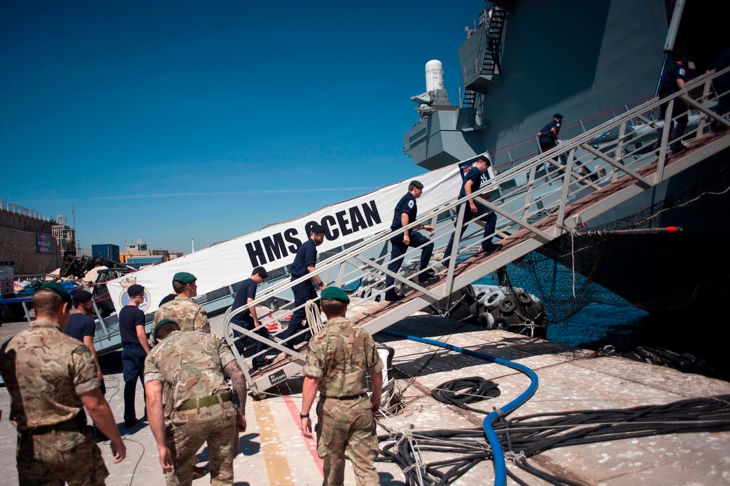Hurricane Irma rampaged through the Caribbean at the end of last week. With some 500,000 British nationals and several British dependencies sat in the hurricane’s path, Britain was always going to be deeply involved in the fall out.
In true British fashion, criticism of the response was quick to mount. Jeremy Corbyn claimed the UK ‘should have acted much faster’. Others, including senior MP’s from both parties, went as far as labelling the response ‘appalling’ and suggested the UK had been ‘caught out’.
But is such criticism valid? Brigadier John Ridge, Commander of the Joint Task Force – and the man in charge of Operation Ruman, the UK’s response to Hurricane Irma in the Caribbean – thinks not and he has hit back.
When I spoke to him, he described the unique and vast geographical and logistical challenges of the operation. ‘From Turks and Caicos to Barbados is almost 1000 miles,’ he said. The UK response to Irma is spread over thousands of miles and across hundreds of separate islands, and so aid distribution is no simple task. It’s clear that this is no standard humanitarian operation. These are ‘exceptional conditions’, according to Ridge.
Despite this, within days of Irma hitting the Caribbean, the UK had flown in nearly 1,000 personnel, including 400 Royal Marines, to maintain law and order. Humanitarian aid has been delivered to many of the islands, and a regiment of engineers was also dispatched to start immediate reconstruction. It’s also worth noting that RFA Mounts Bay, a Bay-class auxiliary landing ship dock, was pre-positioned in the Caribbean in the event that such a hurricane did make land. Following Irma’s arrival, it was immediately activated.
The UK was forced to fly the vast majority of its personnel and infrastructure out to the Caribbean from either the UK or Gibraltar, a logistical feat not required of other nations. The two other European countries with territories in the region, France and the Netherlands, both retain a permanent military presence in the Caribbean – something the UK does not do. So comparisons to their responses are flawed.
The transfer of resources and personnel was made further difficult by the fact that many island runways had been damaged as Irma passed through. The runway in Anguila, one of the largest and most important islands, was heavily potholed. As a result, UK forces were forced to test land smaller planes before attempting to land larger transport planes laden with aid and personnel. All these smaller hurdles add up.
The damage from the hurricane is also exceptionally bad. Ridge, who has spent much of the past 20 years serving in some of the UK’s most testing conflict zones, described it as ‘staggering’ and on a level he ‘can’t remember seeing anywhere else’.
There is much to suggest that given the unique context of the territories involved, the UK response was in fact both rapid and welcome by locals. A tense atmosphere arose in the immediate wake of the Hurricane, particularly on the British Virgin Islands, where 100 inmates, including ’40 high risk individuals’, escaped from the island’s prison. Ridge claims that the British forces, who were working with local police, were ‘greeted with a sigh of relief’, while Royal Marine patrols received rounds of applause from locals.
Operation Ruman may now reignite the debate over budget cuts to the military, given that both the Royal Marines and HMS Ocean, the Royal Navy’s Flagship which was also dispatched, have been eyed up for cuts in the near future. Negotiations are reportedly ongoing regarding the sale of HMS Ocean to Brazil. Were those cuts to be carried out, Britain’s ability to respond to similar disasters would almost certainly be hindered.
Brigadier John Ridge is immensely proud of Operation Ruman so far, describing it as ‘a personal thing. It’s an innately human activity, we are helping people in desperate need and doing absolutely the right thing.’ So instead of using Irma to bash the government, perhaps we should reflect on what it tells us about our military funding?






Comments